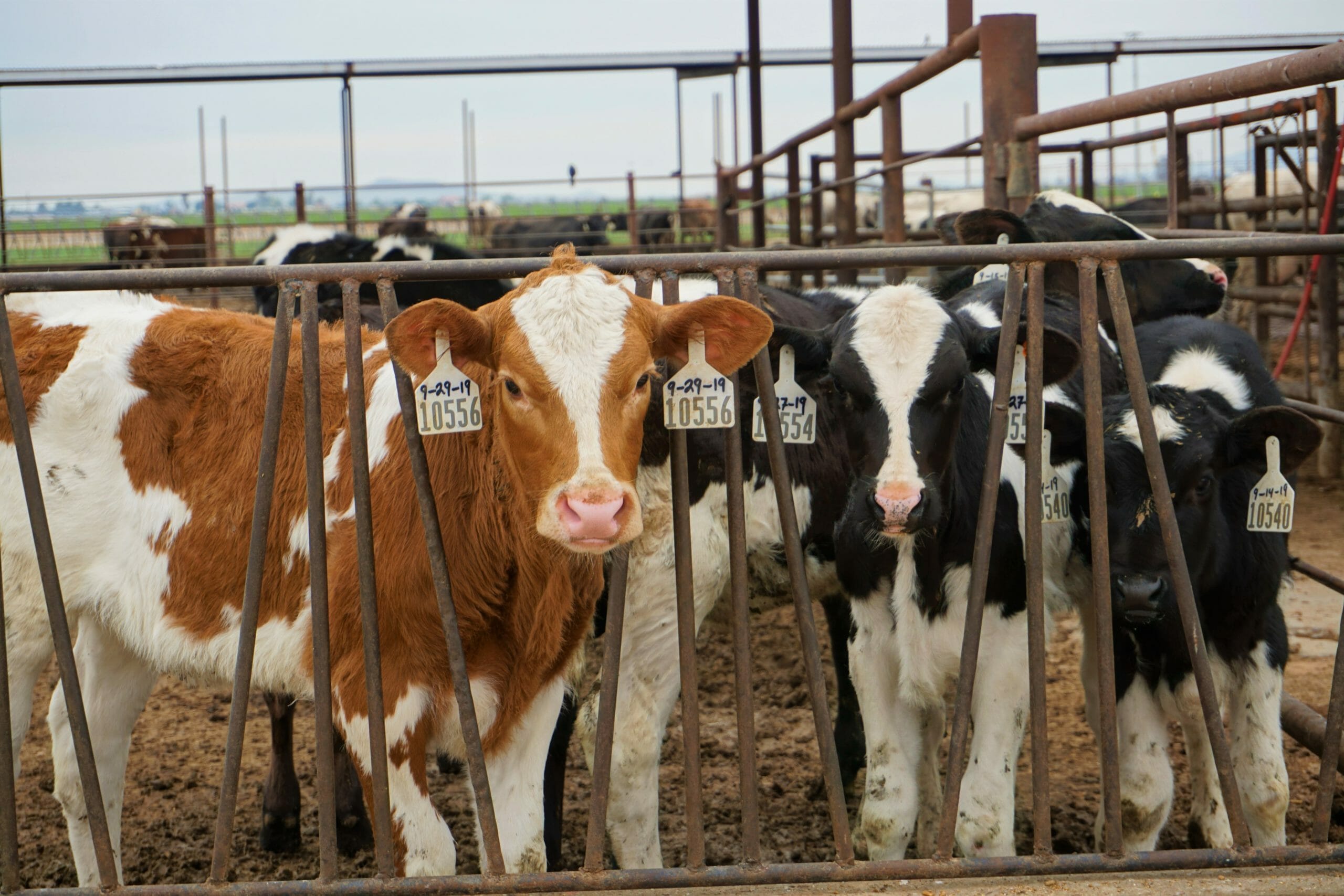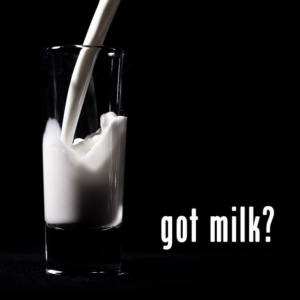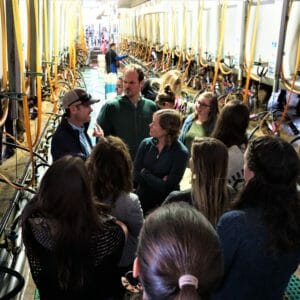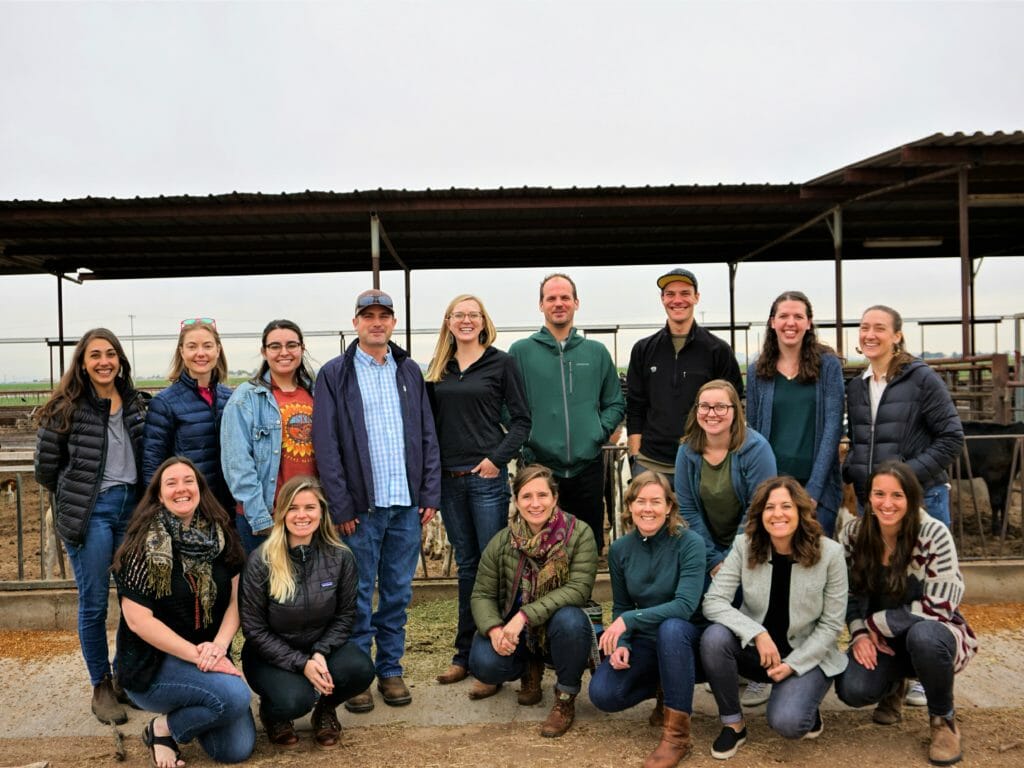As we post this blog, we are witnessing devastation in the dairy industry brought about by the COVID19 pandemic. Wes Kerr and his family are struggling to survive, as are dairy farmers across the country. It is heartbreaking. The United Dairymen of Arizona sent a letter to USDA stating that this is the biggest market crash the industry has seen in 60 years and, without timely and significant support, many dairies will not survive. More on what’s going on with the Kerr Family Farm and dairies in Arizona can be found in this 4/17/20 article in West Valley View.
-Note from Swette Center Director Kathleen Merrigan
This blog post was written by Arizona State University graduate student Devin Foote. In addition to studying Food Policy and Sustainability Leadership at ASU, Devin is a food systems program officer at the W.K. Kellogg Foundation in where he supports the foundation’s efforts to promote thriving children, working families and equitable communities.
For over ninety years the Kerr Family Dairy in Buckeye, Arizona has been committed to family farming. Commitment is one word that Wes Kerr, our generous host continued to reference over and over again, “we are committed to our family, committed to our animals, and committed to our land.” The Kerr Family Dairy is home to 2,300 dairy cows and 600 acres of feed crops comprising a field production mixture of alfalfa, sorghum, and oats. Rotation of these crops occurs continually as this year-round operations hosts an active milking herd of 1,100 animals that are milked three times a day. Wes is simultaneously farmer, advocate, and spokesman for the Arizona dairy sector, “Agriculture dairy farming is a passion of ours and we enjoy sharing that passion with other people. Twenty-six million dairy cows were needed in 1940 to provide milk and dairy products for Americans and today there are 9.4 million dairy cows in the U.S. These 9.4 million are producing more milk than the 26 million in 1940 – we’re better and more efficient at what we do.”
As members of Arizona’s largest milk marketing cooperative, United Dairyman of Arizona (UDA), the Kerr Family Dairy is one of 89 farms in the state averaging 2,800 head per dairy. UDA is the sixth largest private employer in the state and the manufacturing facility in Tempe operates 24 hours a day, 7 days a week, and can process over 1 million gallons of milk per day. As members of UDA, the Kerr Family Dairy is represented by the Dairy Council of Arizona (DCA), which is funded by Arizona’s dairy farmers through a federal checkoff program. These funds support the DCA in providing evidence-based resources to schools, health professionals, and consumers, encouraging the daily consumption of milk products. In 2019, Arizona’s dairy industry reported 4.2 billion pounds of milk produced per year; 205,000 total cows, and an average time of 48 hours for milk to get from the farm to the store.
The Diary Checkoff Program
The dairy checkoff program is part of USDA’s Agricultural Marketing Service (AMS), one of seven key agencies within the Department. The “management” in Dairy Management stands in part for the fact the group manages a government program: USDA’s national dairy checkoff program. Failure on the part of a dairy producer to pay into the checkoff program results in fines and interest charges due not to Dairy Management but to the United States government. Despite the long history of milk sales and consumption in the U.S., Dairy Management is a relative newcomer. The group, formed in the mid-1990s, grew out of a 1983 law, the Dairy and Tobacco Adjustment Act. Dairy Management administers the checkoff program, which is known formally as the Dairy Research and Promotion Program. Dairy Management is overseen by a board of 38 members, who are selected by the USDA Secretary.
Under the program, dairy farmers pay Dairy Management 15 cents for every hundred pounds of milk they sell (dairy importers pay 7.5 cents). “That money—with USDA oversight—is used to fund programs aimed at promoting dairy consumption and protecting the good image of dairy farmers, dairy products and the dairy industry,” Dairy Management explains on its website. Dairy Management cites that it has “approximately 160 national employees, along with almost 300 local staff.” Dairy checkoff funds are used for a variety of purposes—including not just marketing but also information and research. The dairy checkoff program is just one of nearly two-dozen checkoff programs USDA’s Agricultural Marketing Service administers for agricultural products such as eggs, beef, pork, and cotton.
On behalf of the entire ASU Food Policy and Sustainability Cohort, I would like to extend our sincere appreciation to Wes Kerr and the whole Kerr Family Dairy team for giving us the opportunity to visit and learn more about their operation and milk production in Arizona.
As we navigate these uncertain times it is more important than ever to have a robust network of food and agriculture policy leaders to make sensible and responsible decisions. Could you be one of those people? Learn more about answering this call by checking out the Food Policy and Sustainability Leadership Program at ASU!



